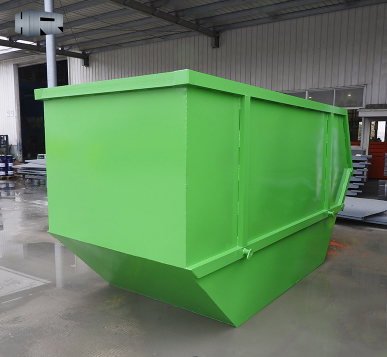
Self-tipping bins are a revolutionary innovation in waste disposal that have transformed the way we manage and handle waste. These bins are equipped with an automated tipping mechanism that allows them to empty their contents without the need for manual intervention. This new technology offers numerous advantages over traditional waste disposal methods, resulting in more efficient and sustainable waste management practices.
One of the key benefits of self-tipping bins is improved efficiency. These bins can unload their contents in a matter of seconds, significantly reducing the time and effort required for waste disposal. In traditional waste management systems, manual collection and emptying of bins can be a time-consuming process, especially in high-traffic areas or large-scale waste management facilities. Self-tipping bins eliminate the need for manual handling, enabling faster and more streamlined waste disposal operations.
Another advantage of self-tipping bins is improved safety. Manual waste collection and disposal can be a risky task, particularly when dealing with heavy or hazardous waste materials. Self-tipping bins remove the need for workers to physically handle or lift the bins, minimizing the risk of injuries and accidents. This is particularly beneficial in industrial settings where there might be a higher prevalence of dangerous or toxic waste. By reducing the physical demands of waste disposal, self-tipping bins contribute to creating safer work environments for waste management personnel.
Furthermore, self-tipping bins have a positive impact on environmental sustainability. Efficient waste disposal significantly reduces the likelihood of littering and improper waste management practices. The quick emptying process of self-tipping bins ensures that waste is promptly and properly disposed of, minimizing the risk of waste being left unattended or scattered. This not only improves the overall cleanliness of an area but also helps to prevent potential environmental hazards associated with improper waste management.
Additionally, self-tipping bins can contribute to reduced carbon footprint. The automated tipping mechanism allows for optimized waste collection routes and schedules, optimizing fuel consumption and reducing emissions generated by waste collection vehicles. This improved efficiency in waste collection and disposal can lead to significant energy savings and reduced carbon emissions in the long run, enhancing the sustainability of waste management operations.
Self-tipping bins also enable more precise monitoring and control of waste disposal processes. Many of these bins are equipped with built-in sensors and tracking systems that provide real-time data on waste levels and collection times. This data can be utilized to optimize waste collection routes, adjust collection frequencies based on the actual waste generation, and identify areas or bins that require immediate attention. This level of monitoring and control fosters more effective waste management strategies and helps in the implementation of waste reduction measures.
Furthermore, the introduction of self-tipping bins can have a positive impact on public perception and behavior towards waste disposal. By offering a more convenient and efficient waste disposal solution, these bins encourage individuals to properly dispose of their waste, rather than resorting to littering or irresponsible practices. The availability of self-tipping bins in public spaces promotes a culture of responsible waste management, fostering a cleaner and more sustainable community.
In conclusion, self-tipping bins have revolutionized waste disposal by providing a more efficient, safe, and sustainable method of waste management. These bins improve operational efficiency, enhance safety for waste management personnel, reduce environmental hazards, and offer more precise monitoring and control over waste disposal processes. With their significant advantages, self-tipping bins contribute to transforming waste management practices and promote sustainable waste disposal for a cleaner and greener future.




تعليق
(0)